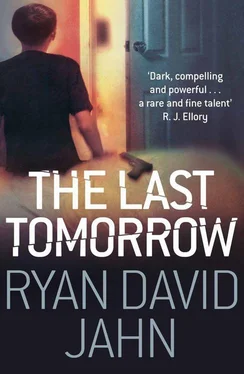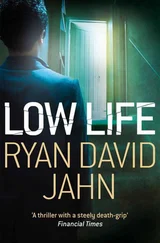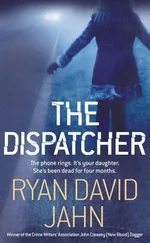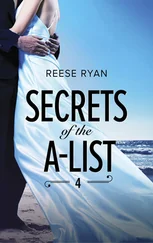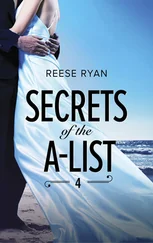Ryan Jahn - The Last Tomorrow
Здесь есть возможность читать онлайн «Ryan Jahn - The Last Tomorrow» весь текст электронной книги совершенно бесплатно (целиком полную версию без сокращений). В некоторых случаях можно слушать аудио, скачать через торрент в формате fb2 и присутствует краткое содержание. Год выпуска: 2012, ISBN: 2012, Издательство: Macmillan Publishers UK, Жанр: Триллер, на английском языке. Описание произведения, (предисловие) а так же отзывы посетителей доступны на портале библиотеки ЛибКат.
- Название:The Last Tomorrow
- Автор:
- Издательство:Macmillan Publishers UK
- Жанр:
- Год:2012
- ISBN:9780230766501
- Рейтинг книги:4 / 5. Голосов: 1
-
Избранное:Добавить в избранное
- Отзывы:
-
Ваша оценка:
- 80
- 1
- 2
- 3
- 4
- 5
The Last Tomorrow: краткое содержание, описание и аннотация
Предлагаем к чтению аннотацию, описание, краткое содержание или предисловие (зависит от того, что написал сам автор книги «The Last Tomorrow»). Если вы не нашли необходимую информацию о книге — напишите в комментариях, мы постараемся отыскать её.
The Last Tomorrow — читать онлайн бесплатно полную книгу (весь текст) целиком
Ниже представлен текст книги, разбитый по страницам. Система сохранения места последней прочитанной страницы, позволяет с удобством читать онлайн бесплатно книгу «The Last Tomorrow», без необходимости каждый раз заново искать на чём Вы остановились. Поставьте закладку, и сможете в любой момент перейти на страницу, на которой закончили чтение.
Интервал:
Закладка:
Trash bins line the alley, giving off the stink of old garbage. At the other end of the alley, an empty street. Then a car rolls by.
‘Fuck,’ he says, and leans for a moment on the brick wall to his left.
Once he has his breath again he walks back toward the hotel. He’s no longer a young man in uniform and is apparently incapable of doing the things he once did. It doesn’t matter. This was not a hoodlum, thug, or gunsel. This was a guy with a job, an address, and square friends who don’t know better than to talk to cops. That was clear by looking at him. Carl will find him, he’ll track him down to his front door and knock.
That’s what he tells himself, anyway.
He hopes he isn’t lying.
3
Eugene’s shoes pound the sidewalk. He feels scared and upset and absolutely drained. He doesn’t know what to do. He had to abandon his milk truck at the scene, and a single phone call to the H.H. White Creamery Company will tell the police that truck number twenty-seven is his. A police detective saw him in his milkman’s uniform with the murder weapon, which even now lies in the hotel lobby, unless it’s already been collected as evidence. And he ran rather than cooperating with the police. Not that he had a choice. They wouldn’t have believed his story. The obvious answer is often the correct answer, it usually is, and it looked like he killed those men upstairs, so he must have. No amount of protest on his part would have changed their minds. And every action he took only worked to smear more red across his hands. What he did seemed right in the moment but he finds it hard to imagine doing anything that would have incriminated him further. But there was no right thing to do in that situation. There was one wrong choice or another wrong choice. That there’s always a right thing to do is a lie you tell to children.
But now what?
The grand-jury investigation is an irrelevancy. For him it is. He’s now wanted for murder, real murder, actual physical murder, his thumb on the hammer spur, his finger on the trigger, and one of the victims was a cop. If the police don’t have his name yet they soon will. His only hope is that it takes them a couple hours to put it all together and get to his place. He wants to gather some clothes as well as a hundred dollars in cash he has folded into a sock.
He hops onto a streetcar at 6th Street and rides it west to Vermont.
In ten minutes he’s back on foot, and back on foot he lights a cigarette and makes his way to New Hampshire. He keeps his eyes on the street, looking for radio cars, wanting to make sure he sees any cops before they have a chance to see him.
He needs to get out of these clothes; they’re too conspicuous.
He walks up the stairs to his apartment, unlocks the front door. The place is empty but he doesn’t know how long he has so he must hurry.
His revolver, which he’s certain he left lying on the dining table, is absent, as he knew it would be. Evelyn. Goddamn it. He knew she was responsible, at least in part, but even so there was a part of him that hoped he’d walk in here and find the revolver where he left it. That would at least have cast some doubt on her involvement.
Stop bellyaching, Eugene. There’s no time for it.
He walks to the bedroom and pulls a cardboard suitcase out from under his bed, the same suitcase he used when moving here from the East Coast. He also finds a locket lying on the floor, a small gold locket with an intricate design etched into it.
With the suitcase in one hand and the locket in the other he gets to his feet. He tosses the suitcase onto the bed, examines the locket. A thin gold chain is strung through it, the chain’s clasp broken. He thumbs a button on the side of the locket and it opens. Inside, a picture of a teenage girl sitting beside her father. She’s in a dress, he’s in a suit and tie. He recognizes her despite the fact the picture is probably more than ten years old. He also recognizes the man, though he’s never seen him in person. He’s seen his scowling image on the front page of several newspapers over the years. A person of interest. Suspected of bribing public officials. Suspected of murder. Connections to the underworld in several major American cities. Then, months later, a different story on page three. No charges filed. Acquitted. Bad information. Lost evidence. Sloppy police work.
James Manning.
The Man.
Eugene would be willing to bet green money on Evelyn’s last name. When she told him she worked for her father she was telling the truth. She simply neglected to mention who her father was. Who he is. And what he is.
He tosses the locket into the suitcase, then piles clothes on top of it, pants and shirts and underwear. He opens his sock drawer, pulls out several pairs, throws them into the suitcase. At the back of the drawer he finds a lone sock folded over itself. He unfolds it and removes ten ten-dollar bills, all the money he has in the world. He sets the money on top of his dresser. He closes the cardboard suitcase, tries to latch it and finds the latch broken. He wraps a belt around it to keep it closed. He changes into a different set of clothes, a pair of khaki pants and a checkered shirt and a cardigan; fresh socks and a pair of casual two-tone shoes. He grabs the money from the dresser and shoves it into his pocket. He lifts the suitcase.
He has a motorcycle parked in the garage, a Harley-Davidson with a two-cylinder panhead engine. He hasn’t touched it in almost a year. Rode it often last summer, then garaged it and forgot about it. The milk truck is always right out front.
He hopes he can get the bike to start. He’s about to find out.
Without knowing where he might go, without knowing what he might do, having no idea what might be in store for him at all, he heads out the front door.
TWENTY-THREE
1
Seymour Markley sits at his desk in his home office, the door shut and locked. He doesn’t want Margaret to walk in on him, as she sometimes does, offering a snack or something to drink. He doesn’t want her to see what he’s looking at, dozens of potential blackmail photographs. He’s amazed by how many there are. But it makes sense. None of the men in these pictures would dare speak up about being blackmailed. If they did they’d have to reveal why they were blackmailed, and if they were willing to do that they couldn’t have been blackmailed in the first place. The numbers added up because no one would reveal himself as a whoremonger.
Seymour faces the same shameful problem. He’d like to use these pictures to some political advantage, but doesn’t want anyone to know he too was photographed.
Of course that evidence is bubbled black film in a trash bin now, and while some of these men might suspect something, he learned many years ago that suspicion isn’t evidence. It isn’t even close.
So how does he best use these pictures to his advantage? He doesn’t want to blackmail anyone. He wants these men on his side. He wants these men in his corner come a political fight.
Perhaps the best move is to simply hand the pictures over to their subjects and suggest they remember the favor. But some of them might not even know the pictures exist. In fact, it’s certain. The pictures Vivian and her cuckold husband had of him were from over a year ago. They held onto them until they were useful. They were patient. Some of these men with whom he has old rivalries might even assume he hired someone to get the pictures himself, and that would only serve to make them mistrust him further. It could convince them that he should be buried, and there are those among them who could bury him.
So he’ll be careful. He’ll only give the pictures to those already on his side. He’ll put them in envelopes and hand them over and say, thought you might want these back. If the fellow responsible for them has been bothering you, that’s finished now. If not, I saved you some serious trouble. The rest of the pictures, he’ll hold on to.
Читать дальшеИнтервал:
Закладка:
Похожие книги на «The Last Tomorrow»
Представляем Вашему вниманию похожие книги на «The Last Tomorrow» списком для выбора. Мы отобрали схожую по названию и смыслу литературу в надежде предоставить читателям больше вариантов отыскать новые, интересные, ещё непрочитанные произведения.
Обсуждение, отзывы о книге «The Last Tomorrow» и просто собственные мнения читателей. Оставьте ваши комментарии, напишите, что Вы думаете о произведении, его смысле или главных героях. Укажите что конкретно понравилось, а что нет, и почему Вы так считаете.
